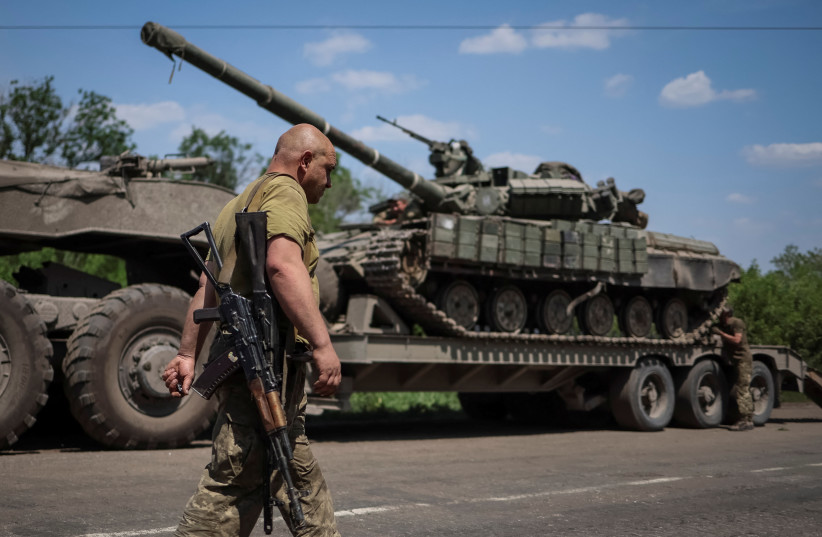Presidents Volodymyr Zelensky and Joe Biden quite naturally talk about the need Ukraine has to defend itself, as a free sovereign nation. Indeed, when a democratic nation is invaded by an autocratic nation, the democratic nation tends to rally around the value of freedom more than any of the other values traditionally associated with democratic nations, notably equality, but also stability and community.
This is certainly the way the United States fought against Great Britain, when we were the 13 colonies. Americans celebrated our victory, founding and independence – many with ambivalence following the Supreme Court’s Dobbs opinion that overturned Roe v. Wade – this past Monday, July 4th, Independence Day.
Americans also treated both World Wars in the same way, although we were not literally invaded in World War I and in World War II only Hawaii was invaded. Even then the port and the naval base were invaded along with some surrounding territory in Honolulu, but the US mainland was not invaded the way Poland and France, for example, were invaded. Nevertheless, we were attacked, and Japan may have been positioning themselves for an invasion of the West Coast.
Democracies are always trying to balance competing values, especially the historic struggle between freedom and equality. But when a democratic country is invaded, or its military forces are attacked, it must put aside its historic tension between freedom and equality, especially economic freedom vs economic equality, when it comes to publicly rallying its people.
The concept of freedom that is defended is frequently called (following Isaiah Berlin) negative freedom, which is essentially freedom from interference. Freedom of speech as expressed in the First Amendment to the US Constitution is a classic example of negative freedom, because it requires that the government not interfere in my right to express my thoughts, given some qualifications.

The concept of positive freedom concerns developing your various capacities for growth and is not typically associated with democracies defending themselves against invasions by foreign enemies. Given that fending off any country or set of countries requires that preeminent concern be given to the value of negative freedom, a problem can arise for a democratic nation if they pursue freedom and only freedom.
An analogue to domestic affairs
THERE IS actually an analogue to domestic affairs, although the situations are not identical.
In war and foreign affairs, a country that only pursues the value of freedom might misconceive the nature of its predicament. For if a country is outmatched by its opponent and/or entrenched in a war of attrition that will drain its economy and body politic, then it may be prudent, indeed wise, for a country to strike a deal, if possible.
In the case of the war between Russia and NATO funded Ukraine, the question arises as to whether Ukraine should trade land for peace and whether Russia would strike a deal with Ukraine. Russia would very likely at this point make a deal for all of Donbas. Would Ukraine? Probably not. What about half of Donbas-Luhansk (which the Russians basically have control of now) but not Donetsk? Unclear. Indeed, this is what the negotiation would be about.
There may be a trade here, but Ukraine could only reach for it if it balanced freedom with other values, notably saving lives and protecting the rest of Ukraine against Russian domination.
The question at the moment is whether the relentless pursuit of freedom is in Ukraine’s best interest. Countries cannot only pursue freedom domestically. Although they can make freedom their only goal when they are at war and on the defensive, there are times when they must balance freedom with other values to save their democracy.
Ukraine is not in the same position as the US, when Woodrow Wilson led us into World War I or when we fought the Revolutionary War in the 1770s and 1780s. Nor are we in the same position as Poland or France, when they were invaded in World War II, or Russia for that matter, which was also invaded by Nazi Germany.
This miserable, complex war today has few parallels in European or American history. Ukraine is fighting to maintain its sovereignty even as they are trying to join the European Union and maintain the support of NATO. But preserving their independence is not equivalent to preserving all of their land.
There are more parallels to Israel, as both fought a war of Independence and fought numerous wars where land was either given or taken. Biden and Zelensky might look to Israel’s success at survival rather than the US’s war experiences to appreciate the challenges ahead.
The writer (dmamaryland@gmail.com) has taught ethics and political philosophy at George Washington University, the University of Cincinnati and Johns Hopkins University, and is editor of the interdisciplinary volume Leveraging (Springer, 2014).
